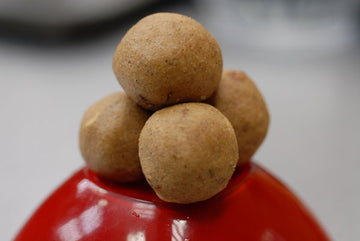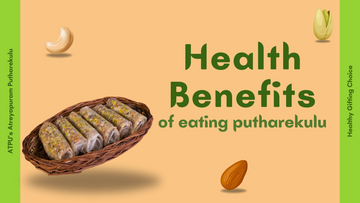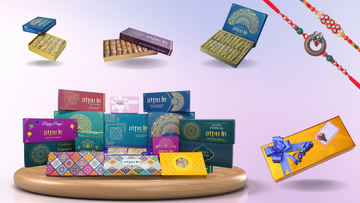
Introduction
Are you a fan of traditional Indian sweets? If so, you're in for a treat! In this article, we will dive into the world of "sunnundalu," a delectable sweet that has been enjoyed for generations in Indian households.
Sunnundalu, also known as "Urad Dal Ladoo," is a mouthwatering delicacy made from roasted lentils, ghee, and jaggery. This article will explore the origins, preparation, health benefits, and popular variations of sunnundalu.
So sit back, relax, and prepare to indulge in the rich flavors of this beloved dessert!
The Origins of Sunnundalu
Sunnundalu traces its roots back to the southern Indian state of Andhra Pradesh. It is believed to have originated in the region's traditional kitchens, where skilled cooks prepared this sweet to celebrate special occasions and festivals.
The word "sunnundalu" itself is derived from the Telugu language, spoken widely in Andhra Pradesh. These delectable treats have stood the test of time and continue to be cherished by people of all ages.
The Perfect Blend of Ingredients
Roasted Urad Dal: The Heart of Sunnundalu
At the core of sunnundalu lies the humble urad dal, or black gram lentils. These lentils are meticulously roasted to perfection, enhancing their nutty flavor and creating a delightful aroma.
The roasted urad dal forms the foundation of sunnundalu, lending it a distinct taste and texture that sets it apart from other sweets.
Ghee: The Golden Elixir
Ghee, also known as clarified butter, is an essential ingredient in urad dal laddu. It not only adds a rich, buttery taste but also plays a crucial role in binding the ingredients together.
The ghee is carefully measured and added to the roasted urad dal, resulting in a heavenly blend of flavors that melts in your mouth.
Jaggery: Nature's Sweetener
To balance the nutty flavors of the roasted urad dal, jaggery comes to the rescue. Jaggery, made from sugarcane juice or palm sap, is a traditional sweetener used in Indian cuisine.
It adds a caramel-like sweetness to the sunni undalu, creating a harmonious blend of flavors. Furthermore, jaggery is a healthier alternative to refined sugar, as it retains essential minerals and nutrients.
If you are interested in more sweets which are made with jaggery, do checkout our Jaggery Putharekulu section.
Health Benefits of Sunnundalu
Sunnunda not only tantalize your taste buds but also offer several health benefits. Let's take a closer look at why indulging in this sweet treat can be good for you:
-
Rich in Protein: Urad dal, the primary ingredient of sunnundalu, is a great source of plant-based protein. Protein is essential for muscle growth, repair, and overall well-being.
-
Energy Boost: The combination of lentils and ghee in sunnundalu provides a quick energy boost. This makes it an ideal snack for those who need an instant pick-me-up.
-
Digestive Aid: The roasted urad dal used in sunnundalu is rich in fiber, which aids in digestion and promotes a healthy gut. It can help prevent constipation and promote regular bowel movements.
-
Iron-Rich Delight: Urad dal is also a good source of iron, a vital mineral required for the production of red blood cells. Including sunnundalu in your diet can help combat iron deficiency and prevent anemia.
Popular Variations
Just like any beloved dish, urad dal laddu has evolved over time, giving rise to various regional and creative variations. Let's explore some popular twists on this classic sweet:
-
Coconut Sunnundalu: In this variation, grated coconut is added to the traditional sunnundalu mixture, lending a tropical twist to the flavor profile.
-
Dry Fruit Sunnundalu: This version incorporates a medley of finely chopped dry fruits like almonds, cashews, and pistachios. The addition of these crunchy elements adds texture and enhances the overall taste.
-
Sesame Sunnundalu: Sesame seeds are roasted and ground with urad dal to create this delectable variation. The nutty aroma of sesame seeds complements the flavors of sunnundalu beautifully.
Frequently Asked Questions (FAQs)
Q: Are urad dal laddus gluten-free? A: Yes, sunnundalu is gluten-free as it does not contain any wheat or gluten-based ingredients.
Q: Can sunnundalu be stored for a long time? A: Yes, sunnundalu can be stored in an airtight container for up to two weeks. Ensure they are kept in a cool and dry place.
Q: Can I make urad dal laddu without ghee? A: While ghee plays a vital role in the texture and flavor of sunnundalu, you can try substituting it with melted coconut oil for a vegan version.
Q: Is it difficult to make sunnundalu at home? A: Making urad dal laddu requires some skill, but with the right ingredients and guidance, it can be a delightful culinary adventure. Practice makes perfect!
Q: Can I find sunnundalu outside of India? A: While sunnundalu is primarily enjoyed in India, you may find them in Indian grocery stores or sweet shops in other parts of the world, especially in areas with a significant Indian population.
Q: Can sunnundalu be enjoyed by children? A: Absolutely! Sunnundalu's sweet and nutty flavors make it a hit among children. However, be mindful of portion sizes and ensure it fits into their overall diet.
Conclusion
Urad dal Laddu, with its rich history, delightful flavors, and health benefits, has rightfully earned its place as a beloved Indian sweet. Whether you savor the traditional version or explore the creative variations, sunnundalu is a treat that brings joy to every occasion.
So, the next time you're in the mood for something sweet, give sunnundalu a try and let its magic melt in your mouth!
If you want to know more about other Andhra Sweets, you got to know about these 7 Andhra Sweets to eat before you become old.








